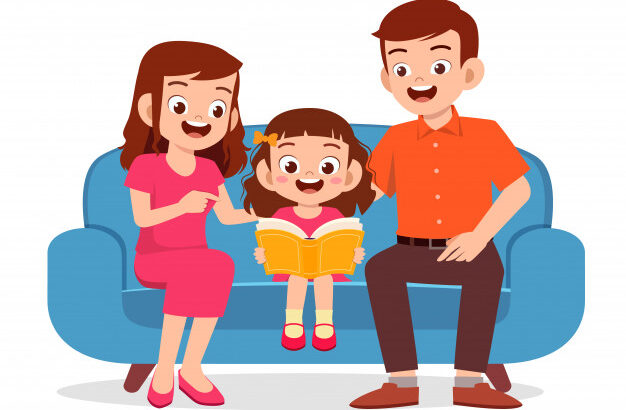“A father’s goodness is higher than the mountain, a mother’s goodness deeper than the sea.”
This Japanese proverb is more relevant today than ever before. That’s because the world around us is getting increasingly competitive by the minute, and as such, the groundwork for a successful life starts right in early childhood. No wonder, the role of parents in shaping a child’s thought process and ultimately his/her future goes beyond the scope of ‘goodness’. In fact, a lot of researchers agree that parents’ interaction with their children plays a crucial role in determining the cognitive and learning outcomes of the kids.
So, do all the parent-child interactions affect learning outcomes? How can these interactions be used as a tool to improve cognitive development in children? Before we discuss these hot topics in parenting and child development, we, at DPS Kota, ranked among the top CBSE schools in Kota, would like to shed some light on the basics first.
What are parent-child interactions?
By definition, these are the unique, influential affiliations between a parent and his/her child(ren). Simply put, every time a child communicates (verbal and non-verbal) with his/her parents is a form of interaction.
For young children, the scope of social interaction remains primarily limited to family. And it is during this early phase that they learn the concept of ‘self’. Thus, every positive interaction they have leads to a well-adjusted personality as they grow and interact with others. And by the time children enter preschool programs, solid and positive relations between home and school contribute to promoting their interest in formal learning.
Do all interactions (even the most mundane ones) affect learning?
While even the smallest of interactions can leave a long-term effect on a child’s personality and behavior, in the context of learning and cognitive development, these are limited to the set of interactions in the home and school settings that are meant to support the children’s educational progress. The more positive and interactive the interaction, the better is the learning outcome. Some of the most common ways parents can get involved in these setups are –
- ‘Talking’ about the school day
- Actively helping children with homework
- Reading to them
- Attending plays, games, or other extra-curricular activities at school
- Participating in Parent-Teacher meets
- Volunteering in classrooms
- Attending workshops
- Interacting with other parents, etc.
While some may seem very obvious, they hold prime importance in promoting a good balance between ‘Home’ and ‘School’. Since these are the two most essential parts of a child’s life, it is vital to have a seamless transition between them.
Empowering parent-child interactions as tools for improved learning
The truth is that the scope of enhancing a child’s overall development and personality by fostering positive parent-child interactions is endless! In fact, based on the recent developments in child psychiatry and development, Parent-Child Interaction Therapy (PCIT) is being used as an effective tool to enhance educational performance in children.
Here are some ways positive interactions improve learning outcomes.
- Synchronized learning – Parental involvement helps bridge the gap between school and home environments, making it less conflicting for children. If parents are aware of the teaching methods and learning goals set in the school, they can use the same ones for teaching at home. They can help children better understand lessons or do their homework.
- Better feedback loops – When parents are involved in children’s school work and regularly interact with teachers, they create an effective feedback loop. This can help teachers adapt their techniques according to children’s learning patterns.
- Improved attendance and classroom behavior – When children see their parents getting more involved in school activities, talking positively about the school and teachers, they are motivated to attend the classes and have better conduct, and this eventually helps increase their confidence. This directly resonates in kids taking more interest in their studies and thereby better learning outcomes.
For the above reasons and more, we, at DPS Kota, one among the top CBSE schools in Kota, firmly believe that parents do have an everlasting impression and impact on the early education of children. At our school, we completely acknowledge this fact and have thus created ample scope to encourage these positive future-building interactions not only among parents and children but also with the school.
